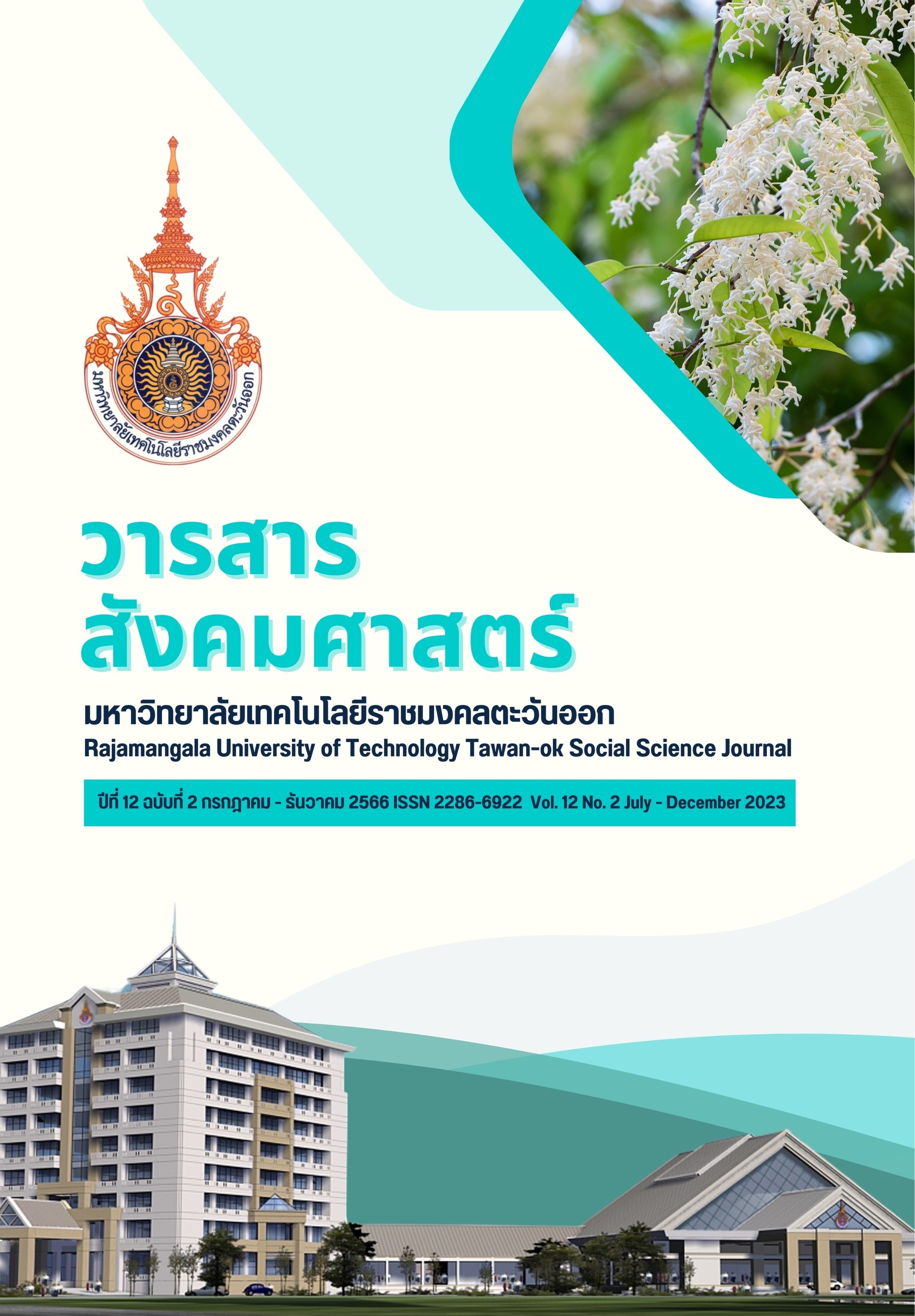Community Participation in the Environment Restoration to Promote Tourism for Doi Tao Lake, Doi Tao District Chiangmai Province
Main Article Content
Abstract
The purpose of this research article is 1) to study the community context and environmental management of Doi Tao Lake and 2) to study community participation in the environmental restoration to promote tourism of Doi Tao Lake, Doi Tao District, Chiang Mai Province. This research is a qualitative research and data are collected form in-depth interviewing, key informants in this study were 50 people select by purposive sampling. The statistics used for analysis the data were frequency distribution, frequency, percentage, arithmetic mean and presented by using content analysis methods. The results founded that 1) Doi Tao Lake is an important natural attraction of Doi Tao District. Most of the tourists come here to admire the natural beauty and there are also many nearby tourist attractions and various types, 2) the community participates in environmental restoration to promote tourism of Doi Tao Lake, in terms of participation in decision-making, participation in operations participation in receiving benefits and participation in the evaluation, which the group leaders and committees are an important persons in coordinating with government agencies and then distributing information.
Article Details

This work is licensed under a Creative Commons Attribution-NonCommercial-NoDerivatives 4.0 International License.
References
กอบสิทธิ์ ศิลปชัย. (2563). แนวโน้มเศรษฐกิจ. กรุงเทพฯ: ธนาคารกสิกรไทย.
กฤษณ์ จุฑามณี. (2564). การจัดการการท่องเที่ยวอย่างยั่งยืน ของชุมชนริมคลองประเวศฝั่งเหนือกรุงเทพมหานคร.วิทยาศาสตรมหาบัณฑิต (การจัดการสิ่งแวดล้อม). คณะบริหารการพัฒนาสิ่งแวดล้อม.สถาบันบัณฑิตพัฒนบริหารศาสตร์.
กันตชา ศรีอยุธย์. (2564). การศึกษากระบวนการการมีส่วนร่วมของชุมชนท่องเที่ยวโอทอปนวัตวิถีบ้านต้นโพธิ์ จังหวัดปทุมธานี เพื่อการท่องเที่ยวอย่างยั่งยืน. ศิลปศาสตรมหาบัณฑิต สาขาวิชาการจัดการการท่องเที่ยวแบบบูรณาการ. คณะวัฒนธรรมสิ่งแวดล้อมและการท่องเที่ยวเชิงนิเวศ มหาวิทยาลัยศรีนครินทรวิโรฒ.
คมน์ พันธรักษ์. (2563). การบริหารธุรกิจ SMEs ในช่วงวิกฤต ของโรคระบาด COVID-19. กรุงเทพฯ: มหาวิทยาลัยธรรมศาสตร์.
นครินทร์ วนกิจไพบูลย์. 2563. ท่องเที่ยวไทย 2562 ยังไหวไหม ธุรกิจไทยควรปรับตัวอย่างไร. แหล่งที่มา https://youtu.be/sTzVlA6ImMU. สืบค้นเมื่อ 29 มีนาคม 2566
บริสุทธิ์ แสนคำ. (2564). พฤติกรรมการท่องเที่ยวของนักท่องเที่ยวชาวไทยหลังสถานการณ์โควิด 19. วารสารศิลปศาสตร์และอุตสาหกรรมบริการ. หลักสูตรปริญญาโท-เอก สาขานวัตกรรมบริการและการสื่อสารระหว่างวัฒนธรรม คณะอุตสาหกรรมบริการ. มหาวิทยาลัยเกษตรศาสตร์. 4(1), 160-167.
วิทยาลัยการจัดการ มหาวิทยาลัยมหิดล. (2565). พฤติกรรมการท่องเที่ยวของคนไทยหลังโควิด-19 ในหัวข้อ “NEO Tourism ท่องเที่ยวมิติใหม่ เจาะอินไซต์นักเดินทาง”. สาขาการตลาด วิิทยาลััยการจััดการ มหาวิิทยาลััยมหิิดล.
วิสาขา ภู่จินดา และ ณัฏฐธิดา พัฒนเจริญ. (2564). การท่องเที่ยวที่เป็นมิตรกับสิ่งแวดล้อม กรณีศึกษา: ชุมชนบ้านสะนำ ตำบลบ้านไร่ อำเภอบ้านไร่ จังหวัดอุทัยธานี. วารสารวิจัยและพัฒนา มหาวิทยาลัยราชภัฏสวนสุนันทา. 13(2), 301-319.
สมศักดิ์ สามัคคีธรรม. (2562). การจัดการคลัสเตอร์การท่องเที่ยวโดยชุมชนที่สอดคล้องกับปรัชญาของเศรษฐกิจพอเพียง. วารสารการเมืองการบริหารและกฎหมาย. 11(1), 83-101
สภาอุตสาหกรรมท่องเที่ยวแห่งประเทศไทย. (2564). รายงานประจำปีสภาอุตสาหกรรมท่องเที่ยวแห่งประเทศไทย 2563. กรุงเทพฯ.
องค์การบริหารส่วนตำบลท่าเดื่อ. (2566). แหล่งท่องเที่ยวในชุมชน. แหล่งที่มา http://thaduea.go.th/document/tourist_attraction. สืบค้นเมื่อ 31 พฤษภาคม 2566
องค์การบริหารการพัฒนาพื้นที่พิเศษเพื่อการท่องเที่ยวอย่างยั่งยืน (องค์การมหาชน). (2558). การท่องเที่ยวโดยชุมชน. กรุงเทพฯ: โคคูน แอนด์ โค.


